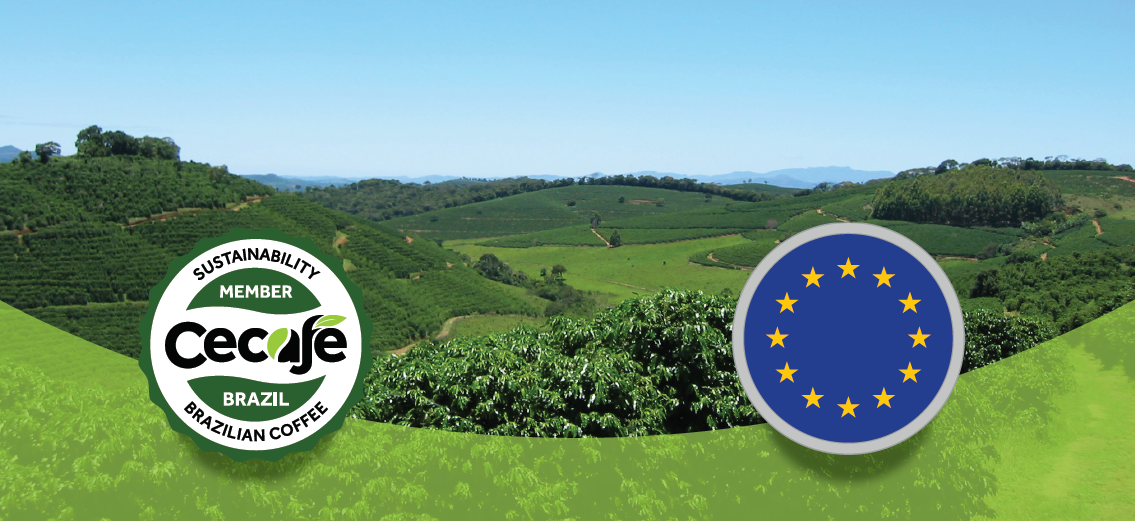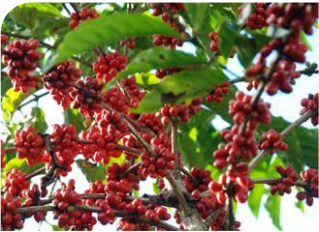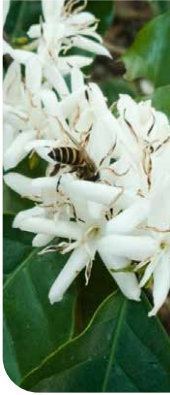
As representative of the coffee export trade in the country, CECAFÉ – Brazilian Coffee Exporters Council, follows closely and acts proactively in discussions about the European Union.
In July 2019 CECAFÉ addressed the issue of the trade agreement between Mercosur and the European Union. In view of recent developments, the European Commission is following a strategy to “promote a fair, healthy and environmentally-friendly food system”, establishing an action plan for the next four years, including deadlines for submittal of legislative and non-legislative proposals.
According to the Commission, the “Farm to Fork” strategy would be a response to society’s demands for solutions to problems relating to the negative impacts of food production on climate change, biodiversity, general consumer health, animal welfare, environmental pollution and food waste. In this regard, the strategy aims to “accelerate the EU transition to a sustainable food system”, always promoting the competitiveness of the European agri-food sector.
By the end of 2020, the Commission should make recommendations to member states on their national strategic plans and their contributions to achieving the nine key specific objectives of the new CAP – Common Agricultural Policy.
As is well known, the ongoing reform of the CAP provides for the introduction of additional environmental conditions for financial transfers to farmers. It is worth noting that such cross-compliance was already foreseen in the Commission’s reform proposal before the “Green Deal” was released in December 2019.
The 27 legislative and non-legislative initiatives that the Commission proposes to present in order to make the regulatory environment more favorable to transition to a sustainable food system are listed below:
- Revise EU legislation on agricultural pesticides to facilitate approval and marketing of organic pesticides (by December 2021);
- Revise the EU directive on the sustainable use of pesticides, aiming at a reduction of use by up to 50% (by March 2022);
- Revise EU legislation on statistics on the use of agricultural pesticides to strengthen decision-making based on scientific evidence and overcome the data gap situation (by December 2023);
- Standardize mandatory food labelling to allow consumers to make more informed and healthier choices (by December 2022);
- Introduce country of origin indication on the label of certain products (by December 2022);
- Establish a framework on sustainable food labelling to enable consumers to make choices that take production sustainability into account (by December 2024);
- Implement EU Low Carbon Farming Initiative (September 2021);
- Define mandatory minimum criteria for government food purchases to promote healthy and sustainable diets in schools and public institutions (by September 2021) and revise the European school lunch scheme (2023);
- Revise policy to promote European agribusiness (by December 2020);
- Revise rules on food expiration date (by December 2022); and
- Legislative proposal for setting food waste reduction targets (2023).
It should be noted that, although this is an European policy, many of the legislative initiatives listed above may have impacts for exporting countries because they involve measures applicable to the entire production chain.
The revision of EU regulations on the use of pesticides, animal welfare, additives in animal feed and labelling rules for products marketed in the EU (including imports) will require special attention from exporting countries.
The mention of third countries in the Commission’s Communication indicates that one of the objectives of the strategy is to promote the “global transition to sustainable agri-food systems through EU trade policy and international cooperation instruments”.
The strategy was considered quite ambitious by European farmers, who are concerned about the increased conditions for financial transfers under the CAP and the loss of competitiveness of European products.
Recently, the European association of agricultural cooperatives (COPA-COGECA) published a note warning about the risks of the “Farm to Fork” strategy, as well as the European biodiversity strategy, for “the EU strategic interests” and asking for “an independent and comprehensive impact study” to be carried out before the Commission prepares the announced legislative proposals. According to the note, the “blind approach” to these objectives would put food security in the EU, the competitiveness of European products and farmers’ incomes at risk.
The reaction of the European pesticides, veterinary drugs and food and drink industry was cautious about the objectives of reducing the use of pesticides, fertilizers, and antibiotics in agriculture, as well as introducing additional standards on animal welfare and mandatory labelling.
The perception of market players is that the European plan is bold, but likely to be extended, promoting broader debate among The perception of market players is that the European plan is bold, but likely to be extended, promoting broader debate among all segments. In this respect, CECAFÉ, in permanent contact with the Embassy and the Brazilian Mission in Brussels, is following the discussions and assessing the potential impacts on Brazilian coffee exports. The work also takes place in partnership with the European Coffee Federation (ECF), which participates in technical groups within the European Commission.
It is important to highlight that despite the work done in technical bodies such as the Commission and the European Council, the final decision is made by Parliament, whose representatives are chosen by popular vote.
The Parliament, with its political bias, analyzes the technical data and takes the public opinion and economic impacts into consideration in its decisions.
Another issue that demands attention is the time to revise the MRL – Maximum Residue Limit for all agricultural commodities. In addition, parallel to the MRL review, there is ongoing debate about authorization for the use of various active pesticide ingredients, similarly to the registration process that occurs in Brazil, but with expiration dates.
It is important to emphasize that in case of MRL reduction, as it seems the case for active ingredients for coffee, orange, soy and many other commodities, and based on MRL studies—and provided that upon request of the company holding the said asset—a possible strategy is to request application of Import Tolerance. Thus, there are chances of maintaining the previous limits for products exported to the European Union.
In this context, CECAFÉ, the representative of the exporting sector and partner of the other segments of the Brazilian coffee industry, such as production and manufacturing, is keeping an eye on global trends and the need for articulation between all the links in the production chain.
In this regard, the Council’s Code of Ethics and Conduct demonstrates the export sector’s commitment to further expand successful socio-environmental projects and continue to promote the image of the Brazilian coffee agribusiness, serving the most diverse and demanding markets around the world.
Marcos Matos – CECAFÉ CEO
Lilian Vendrametto – CECAFÉ Sustainability Manager
For further information:
EUROPEAN FARM TO FORK STRATEGY
download IN PORTUGUESE: https://bit.ly/2YhF4c7
download IN ENGLISH: https://bit.ly/2UpUhq8


Leave A Comment